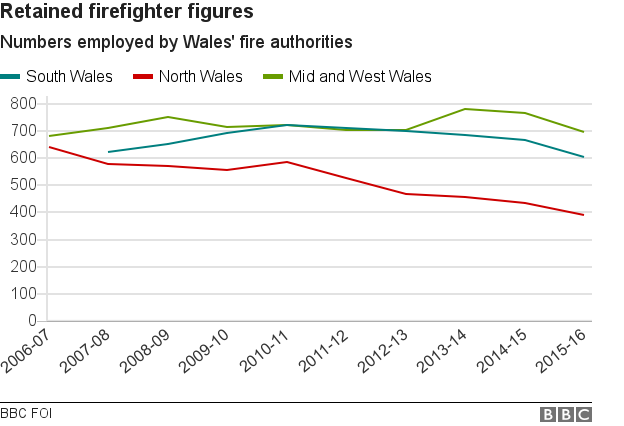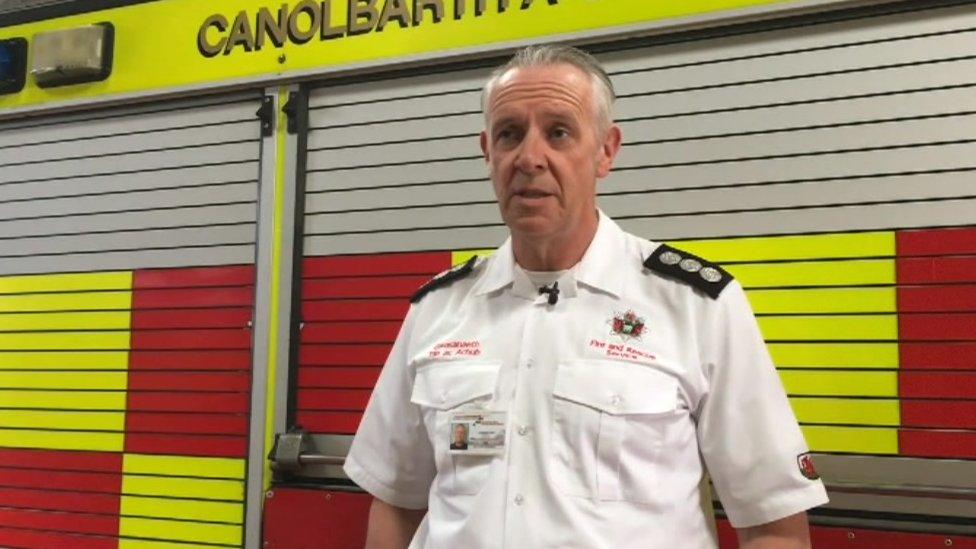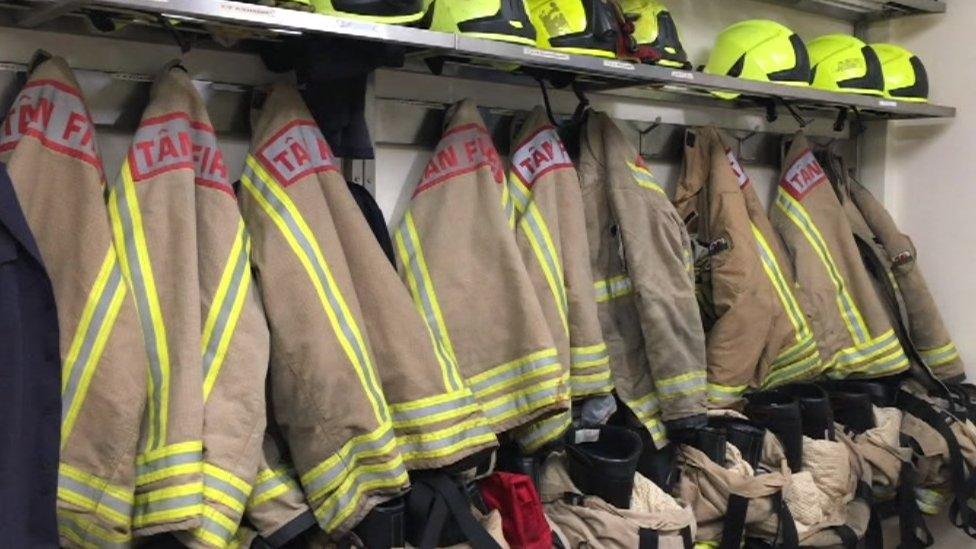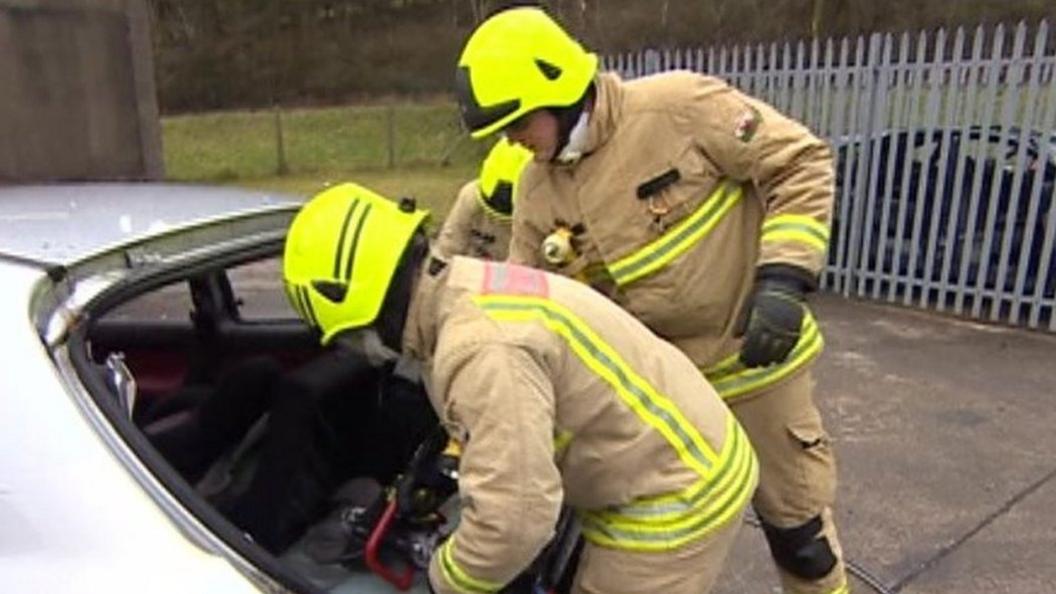Retained firefighter numbers 'at nine-year low' in Wales
- Published
Retained firefighters are on-call up to 120 hours a week
The number of retained firefighters across Wales has hit a nine-year low, figures have shown.
The biggest drop was seen in north Wales, where numbers fell from 577 employees in 2007-8 to 390 in 2015-16.
South Wales along with Mid and West Wales services saw more modest declines in the same period - from 624 and 713 respectively falling to 604 and 695.
The Fire Brigades Union said retention of employees was difficult. Fire authorities said they are recruiting.
Despite the gradual decline in numbers, South Wales fire service had reached a high of 723 retained firefighters in 2010-11, while Mid and West Wales topped 782 on-call staff in 2013-14.
Both fire authorities have seen a year-on-year drop in retained firefighter numbers since those highs, according to the figures obtained in a Freedom of Information request.

Chart showing on-call firefighter numbers in Wales - South Wales fire service did not provide figures for 2006-07
Cerith Griffiths, regional secretary of the Fire Brigades Union, said all services have found themselves in "a predicament".
"I sympathise with the situations that fire services find themselves in because of the nature of [retained firefighter] work," he said. "Being a retained firefighter isn't the best pay in the world.
"I think the issue is retention. It may be down to a perception from people outside that they are going to be joining a service that is constantly called out to big incidents.
"But we have driven the number of fires down through education programmes and the number of incidents is falling all the time. Fire services have become victims of their own success."

Conrad Cole is station manager at Port Talbot Fire Station
Mid and West Wales' Conrad Cole, operational response manager for Neath Port Talbot County Command, said fire authorities face particular challenges in recruiting and maintaining on-call cover during the day.
While people traditionally lived in their locality, he said people now travel for work, making it difficult for them to commit to the service.
"With the modern challenges faced by a lot of people, they work outside the areas they live in, they have complex family arrangements, they've got children - people have busy lives," he said.
"It's a very big, but very rewarding, commitment to a lifestyle."
He added Mid and West Wales fire service was "very proactive" in recruitment and was running a Firefighter For a Day scheme to get potential recruits onboard.
A force spokesman added it had 48 on-call firefighter vacancies across all six of its command areas and was "always on the lookout for new and enthusiastic people" to join.

South Wales fire service's head of human resources, Mark Malson, said: "There's a dedicated HR team continually running recruitment campaigns for fire and rescue stations with on-call firefighting crews.
"In addition, a team has recently been set up to focus on the attraction, recruitment and retention of on-call firefighters, which is being led at a strategic level to further support the current recruitment activities."
He added the force currently had 141 candidates being processed to become on-call firefighters across the south Wales area.
North Wales fire service's assistant chief fire officer, Richard Fairhead, said its low numbers were due to a whole-time staffing review, when recruitment was "frozen" due to firefighters being under threat of redundancy.
He said: "I am pleased to say that around 70 new RDS [retained] firefighters have since joined stations across the region, and around 130 individuals are currently in the process of assessments and or training to become RDS firefighters.
"Further recruitment will be undertaken this year."
- Published13 February 2015
